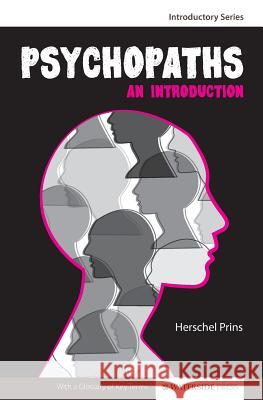Psychopaths: An Introduction » książka
Psychopaths: An Introduction
ISBN-13: 9781904380924 / Angielski / Miękka / 2013 / 176 str.
An expert introduction based on huge experience. Suitable for professionals, academics and general readers. With Questions, Suggestions for Further Reading and a Glossary of key terms. What is a psychopath? How can we tell? Are psychopaths always a risk to the public? How safe are we from criminal psychopaths? This basic guide looks at the history and development of psychopathy. It gives practical illustrations and explains key provisions for dealing with criminal psychopaths (with examples). It also examines possible causes, the difficulties involved in the assessment of risk, and the tools used to determine whether or not someone has a psychopathic personality. Psychopathy may exist in the boardroom or in sport just as it does in our prisons - sometimes driven or successful people can exhibit similar traits without undue adverse comment. But when concentrated in an individual with violent tendencies things become problematic and the chances are that they will not be deterred by or respond to everyday approaches to crime and punishment. Psychopaths may be cold, calculating, manipulative and lack empathy for victims or others. They may be charming, intelligent and walk the streets unnoticed. This book looks at how we seek to identify those who are dangerous or predatory and the arrangements to contain them in prisons and secure hospitals in the name of public safety (often for long periods of time). 'They are Manfred-like characters, existing in their own time and space': Dr Emmanuel Miller, in conversation with the author. 'I think we have to be willing to go into the darkness': Leading psychiatrist, Sarah Trevelyan. Reviews 'Reflects immense scholarship based on multidisciplinary perspectives, innate decency and an ability to convey complex behaviours in a readable style': John Harding CBE. 'A much needed text from one of the doyens in this field': Professor David Wilson. Professor Herschel Prins is highly respected in crime and mental health circles, having started out as a probation officer, worked for the Home Office, taught in universities and served on the Parole Board, Mental Health Review Tribunal, Mental Health Act Commission and as chair of various inquiries concerning psychopaths.
An expert introduction based on huge experience. Suitable for professionals, academics and general readers. With Questions, Suggestions for Further Reading and a Glossary of key terms.What is a psychopath? How can we tell? Are psychopaths always a risk to the public? How safe are we from criminal psychopaths?This basic guide looks at the history and development of psychopathy. It gives practical illustrations and explains key provisions for dealing with criminal psychopaths (with examples). It also examines possible causes, the difficulties involved in the assessment of risk, and the tools used to determine whether or not someone has a psychopathic personality.Psychopathy may exist in the boardroom or in sport just as it does in our prisons?-?sometimes driven or successful people can exhibit similar traits without undue adverse comment. But when concentrated in an individual with violent tendencies things become problematic and the chances are that they will not be deterred by or respond to everyday approaches to crime and punishment.Psychopaths may be cold, calculating, manipulative and lack empathy for victims or others. They may be charming, intelligent and walk the streets unnoticed. This book looks at how we seek to identify those who are dangerous or predatory and the arrangements to contain them in prisons and secure hospitals in the name of public safety (often for long periods of time).They are Manfred-like characters, existing in their own time and space: Dr Emmanuel Miller, in conversation with the author. I think we have to be willing to go into the darkness: Leading psychiatrist, Sarah Trevelyan.ReviewsReflects immense scholarship based on multidisciplinary perspectives, innate decency and an ability to convey complex behaviours in a readable style: John Harding CBE.A much needed text from one of the doyens in this field: Professor David Wilson. Professor Herschel Prins is highly respected in crime and mental health circles, having started out as a probation officer, worked for the Home Office, taught in universities and served on the Parole Board, Mental Health Review Tribunal, Mental Health Act Commission and as chair of various inquiries concerning psychopaths.











